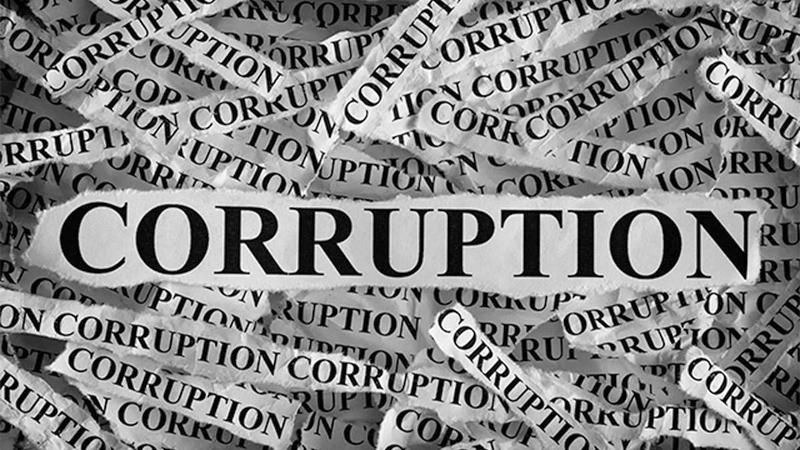
Pratibha Patil, the 12th President of India once quoted “Corruption is the enemy of development and of good governance. Both the government and the people at large must come together to achieve this national objective”. The entire nation believed and accepted the word of honour of the President when he pledged an anti-corruption drive in Chapter-2 of his manifesto. This is one of the salient reasons why the citizens of Sri Lanka elected him to guide the country to a corrupt free State and lead the country to prosperity.
Corruption is described as “dishonest or fraudulent conduct by those in power, typically involving bribery” in the Oxford Dictionary. However, in a country such as Sri Lanka, corruption, petty, grand or systematic, is not only about bribes but also about colossal waste, abuse of power, embezzlement, graft, favouritism, nepotism and many more.
The Government under the guidance of the President has provided many financial comforts to the public at large within a short span of time. Even if the intention is genuine, the pertinent question is, from where does the Government obtain money for the concessions in this dire state of financial crisis the country is desperately confronting now. One of the answers obviously is to minimize, if not eradicate corruption and waste. By strictly controlling these factors, the Government may set off the funds spent for public welfare with the funds saved from corruption and waste.
 Since independence, for over seven decades, the general public witnessed escalating political corruption year by year. Initially, it was petty during the first three decades, post independence.
Since independence, for over seven decades, the general public witnessed escalating political corruption year by year. Initially, it was petty during the first three decades, post independence.
However, it has shot up to significant heights since the introduction of the liberal market economy and within the past two decades risen to unbearable levels.
It is no secret that most of the corrupt practices and the waste of public funds in the country are revolved around public sector institutions such as Ministries, Government Departments, and Local Government authorities. There is a strong belief among the public that the most sensitive area of malpractice is pilfering public funds when offering Tenders to bidders.
Even though procurement guidelines extended through gazette notifications are in place and the National Procurement Committee exists, the common citizen believes that these Tenders are always manipulated.
People justifiably presume that politicians and bureaucrats are equally engaged in these nefarious activities and work hand in hand. Almost every day media reports emerge uncovering corrupt political practices by power holders. The widespread belief is that one has to work with politicians and/or bureaucrats to obtain a tender award irrespective of suitability.
In his manifesto, the President has affirmed that his Government will promulgate laws to enable the introduction of an e-technology system to receive public complaints anonymously and promote whistle blowing in the public sector institutions.
This would be a landmark and revolutionary move in Sri Lankan history provided the complaints are managed impartially and efficiently. In this writer’s view, this undoubtedly will work in two different perspectives. Firstly, the public will not be afraid to make complains for fear of reprisal.
On the other hand, corrupt officials will be petrified to take part in unlawful and dishonest acts. This action undoubtedly will bear longstanding, triumphant results and save a colossal amount of the tax payer’s money. Even though a Commission to Investigate Allegations of Bribery or Corruption (CIABOC) is in place in Sri Lanka, it is a common question whether the Commission acts adequately to minimize bribery or corruption.
As an authority empowered to take legal action against malpractices, for the past many years, the number of cases filed was not adequate in the public opinion and most of the convictions were for minor offences.
Customary explanations on most occasions were that the Commission is understaffed, mainly in legal and investigative sections, which literally may be a fact.
Hence, as a first step, it is important that the most powerful Government arm against bribery and corruption reassess the whole mechanism and proffer adequate remedies. Consecutive governments that came into power in the past many years have seemingly ignored the utmost importance of the Auditor General’s reports submitted to Parliament, which provided an independent review of the performance and accountability of public sector institutions.
These officials report the waste of public funds by these institutions. This report is a powerful tool to investigate and penalize corrupt politicians and state officials.
In the past the public witnessed that the officials of the Department were humiliated publicly by politicians when the reports were not in favour of their political agenda.
Therefore, it is absolutely necessary for Parliament to scrutinize and take appropriate action to curb corruption in these state institutions.
The newly elected President has taken swift action to curtail corruption, more than any other Head of State has ever done in such a short span of time since election to office. Since the date of taking oath, every decision and move he made so far was done with the utmost faith of the public. Even his political enemies and people who voted against him hail these actions, which is a new culture in our society.
Therefore, it is crucially important for the Government to keep continuing these constructive and optimistic actions without abandoning them after a period, which has been the usual practice so far. As a tried and proven task master, it is important that the President apply adequate amount of pressure and continue to monitor the accomplishments by politicians and officials of his Government.
